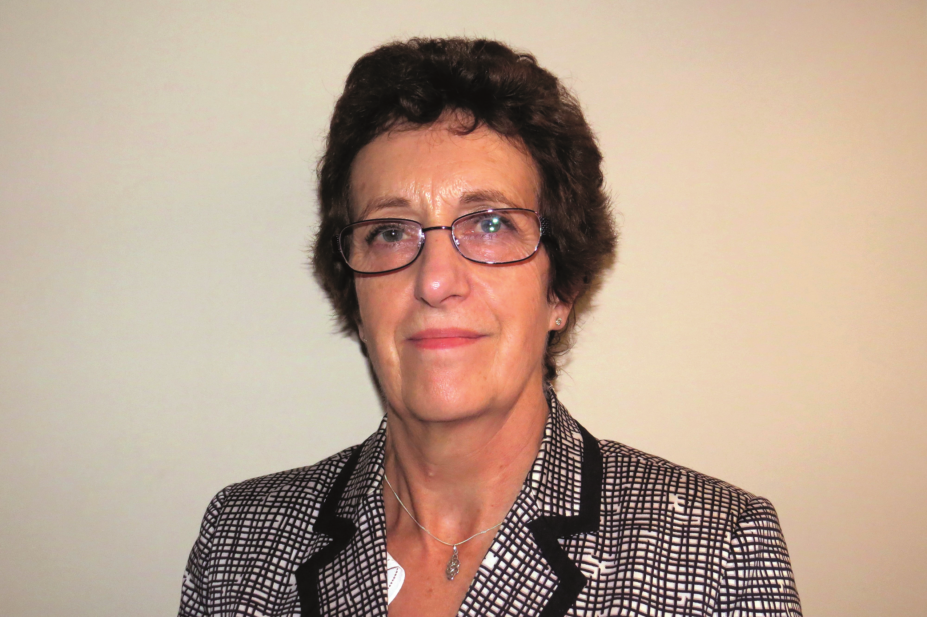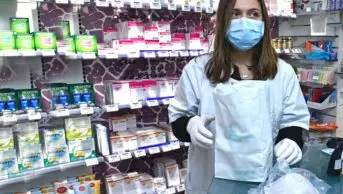
Courtesy of Cathy Cooke
Cathy Cooke is pharmacy manager at Care UK’s Emerson’s Green NHS Treatment Centre.
How did you decide you wanted to be a pharmacist?
In my teens, I decided that I wanted a science-based rather than an arts-based career and initially considered medicine or veterinary medicine, but a family connection changed my mind. A friend of my father’s offered me a job in their pharmacy during the school holidays. I was fascinated by the medicines, including the stock bottles of mixtures and cough linctuses that were still being compounded in the pharmacy in those days. I was also impressed by the pharmacists’ range of knowledge.
What is your current role and how did you get here?
Since April 2017, I have been working for Care UK as pharmacy manager at Emerson’s Green NHS Treatment Centre in Bristol, a hospital carrying out elective procedures across a range of specialties.
I started my career as a community pharmacist working in Bristol for a large multiple in a range of managerial and pharmacist roles in GP practices for Bristol South and West Primary Care Trust (PCT) carrying out clinical audits and providing advice on medicines, which I enjoyed. After 25 years, I secured a position as PCT facilitator for a national two-year medicines management project working with GP practices. Following this, I became head of pharmacy at Her Majesty’s Prison (HMP) Bristol, then additionally picked up the role of head of medicines management for Bristol Community Health. In 2013, I moved to Allied Healthcare, a UK-wide health and social care provider as head of medicines management.
What do your daily tasks and responsibilities look like?
My role encompasses operational and staff elements of managing a department in addition to the clinical input of the team. We have a small team of two pharmacists (including me), a pharmacy technician and a dispenser. My focus is on managerial duties and my pharmacist colleague provides clinical support, but I contribute and enjoy participating in ward rounds, providing advice to medical and nursing colleagues, and engaging with patients. Meetings with our chief pharmacist and pharmacy colleagues in the other Care UK centres allow us to share good practice.
What obstacles have you encountered along your journey and how have you overcome them?
The main obstacle has been difficulty in moving between sectors or areas of practice. During the 1990s, I was unsuccessful in my application for a primary care-based role working with care homes. It was disappointing at the time, but I kept trying. I think the situation has improved in recent years for pharmacists looking to move between areas of practice.
Another obstacle was unavailability of the type of role I wanted when I was searching for new roles. I managed this by being flexible and either going for something slightly different or biding my time until something I really wanted came along. My current role was an exciting change as I hadn’t previously worked in secondary care. When the role at Allied Healthcare became part time, I spotted an advert for the position with Care UK to complement it. I was attracted to the challenge of something completely different.
What is it about your job that makes you proud to be a pharmacist?
Being a key member of the multidisciplinary team. There is a real need for pharmacists to be involved in all areas of patient care. I have worked in multidisciplinary teams for many years and the input of a pharmacist complements those of doctors, nurses, physiotherapists and other professions.
In addition to the day job, I have also been involved in voluntary professional activity both within the profession (Royal Pharmaceutical Society local branch) and externally. For a number of years I have been advising the Faculty of Forensic and Legal Medicine of the Royal College of Physicians on medicines optimisation and management in police custody, following initial work on a revision of their medicines administration guidance. I was co-opted to the Board in 2015, and was made an Honorary Fellow of the Faculty in May this year. This made me proud, both personally and professionally, to be recognised.
What does the pharmacy profession of the future look like to you?
This is an exciting time for pharmacists and pharmacy technicians. Opportunities for new areas of practice, or extensions to existing areas such as advanced clinical practice in out-of-hours services and hospital emergency departments, and care home roles, are rapidly developing. There is concern over potential developments in community pharmacy and I’m not sure what will happen. From my experience, I know the value of having accessible healthcare professionals, and any reconfiguring of NHS dispensing contracts that reduces access will impact on other healthcare services.
We need to make ourselves indispensable — although medicines are everyone’s business — we are the experts.
What advice would you give to pre-registration pharmacists wishing to pursue a career like yours?
A portfolio career makes it easier to move between sectors. If you like to stay in your comfort zone, development in one area of practice may be more suitable. Working across different primary care settings gave me experience and knowledge to succeed in senior roles. However, patient contact is limited or non-existent. Moving into secondary care has required me to supplement my primary care clinical knowledge to cover drugs and practice used in this setting, but the skills gained are entirely transferable.
My advice would be — have a flexible career plan, and review it regularly to allow ideas to develop. Keep an eye on available jobs and be prepared to wait for the right one to come along.


